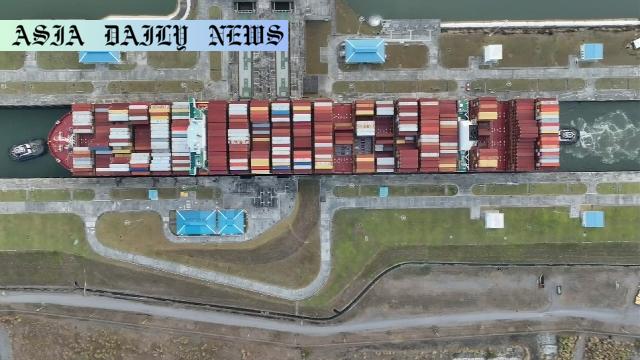Panama Canal: Hong Kong-based operator CK Hutchison Holdings explores inviting a Chinese investor to join consortium negotiations.

Overview of Panama Canal’s Strategic Importance
The Panama Canal stands as a crucial trade route connecting the Atlantic and Pacific Oceans. For over a century, its operation and control have sparked strategic and economic debates, marking it as a focal point of geopolitics. Recently, its significance has come under scrutiny due to discussions involving CK Hutchison Holdings, the Hong Kong-based operator managing ports at both ends of the canal, and its plans to include a Chinese investor. This proposed move has opened a floodgate of geopolitical tensions, particularly emanating from the U.S. and China, two economic superpowers seeking influence over the canal’s future.
In March, CK Hutchison faced pressure to sell its stakes amid rising concerns about Chinese influence at the Panama Canal. The Trump administration advocated for fewer Chinese connections at this highly sensitive trade corridor, emphasizing its importance to global security and trade flows. However, recent developments to introduce a strategic Chinese investor in consortium negotiations may deeply unsettle this balance. As such, the canal’s operational leadership is at the heart of a global power play.
Details of CK Hutchison’s Strategic Move
CK Hutchison has expressed its intent to maintain cordial talks with the consortium led by the U.S. asset management firm BlackRock. However, the expiration of their exclusive negotiation period—coupled with the plan to invite a major Chinese investor—reflects shifting priorities. The company’s decision to potentially onboard a Chinese state-owned marine transportation organization signifies an effort to align itself with Beijing’s geopolitical aspirations.
This approach is not without challenges. By publicly considering Chinese participation, CK Hutchison appears to be seeking domestic and international reconciliation with Beijing. Chinese state influence in the transaction could simultaneously aim to bolster China’s Belt and Road Initiative and global trade footprint. However, these developments may face obstacles from the U.S. government, which has often been vocal about limiting China’s control over crucial global waterways, particularly in a region as vital as the Panama Canal.
The Broader Implications of This Move
Welcoming a Chinese investor into operations surrounding the Panama Canal introduces wider consequences for international geopolitics. Beijing’s apparent push for a state-owned enterprise to join the deal emphasizes the intersection of politics and commerce. While China could benefit from securing crucial involvement in the canal, Washington is likely to perceive this maneuver as a direct challenge to its regional authority.
Geopolitical experts argue that this chain of events could lead to significant consequences for international trade dynamics. Any escalation of U.S.-China tensions over control or influence at the Panama Canal would severely impact global trade routes. Furthermore, the potential Chinese inclusion could spark debates about corporate governance, military logistics, and economic strategy in Central America. While CK Hutchison’s motivations likely revolve around practicality and profitability, the geopolitical ramifications account for much larger global stakes.
Will the Negotiations Progress Amid Rising Tensions?
One of the primary challenges facing CK Hutchison and its consortium is the volatile nature of geopolitical relations between the U.S. and China. With the Biden administration succeeding Trump’s government, initial hopes for diplomatic resolution were high; however, the core disagreements surrounding strategic trade points like the Panama Canal remain unresolved. Parallel to these considerations lies the stance of the Panamanian government itself, concerned about maintaining neutrality over this strategic waterway.
The feasibility of inviting China into the fold is uncertain, as reactions from Washington, Beijing, and global markets dictate the next course of action. Given the complexity of this negotiation, progress will depend on CK Hutchison’s ability to align interests with the leading powers while securing necessary permissions from all involved stakeholders.
Commentary
The Complex Geopolitical Web Surrounding Panama Canal
The discussions surrounding CK Hutchison Holdings and the Panama Canal underline the critical role of this waterway as a chokepoint of global trade. Over 4% of the world’s maritime trade passes through the canal every year, underscoring its strategic value to countries vying for economic influence, such as the U.S. and China. The introduction of a Chinese investor in management decisions reflects not only economic aspirations but also broader political ambitions.
From China’s perspective, expanding its foothold in the canal aligns with its broader objectives, such as the Belt and Road Initiative. By gaining influence in Central America, Beijing could reshape political ties and bolster its competitiveness as a global trade leader. However, this notion is inherently controversial, particularly among U.S. stakeholders who view Chinese maritime pursuits with skepticism. While CK Hutchison is navigating these rocky waters purely for business profitability, its actions have placed it in the midst of a powerful geopolitical rivalry.
Economic Benefits vs. Risks of Geopolitical Fallout
On one hand, there are clear economic merits to CK Hutchison’s decision. Increasing the involvement of a resource-rich Chinese investor could fuel development and operational upgrades crucial for the canal in the long term. Yet, the tensions it creates risk alienating key global partners such as the United States. Ultimately, it is a balancing act requiring immense diplomacy and foresight.
In conclusion, the Panama Canal remains a symbol of strategic opportunity and risk. As the situation evolves, the discussions between CK Hutchison, China, and other key players could provide invaluable insight into the shifting trends of global trade and diplomacy in the coming years. These developments highlight not only economic ties but the delicate interplay of global power hierarchies.


